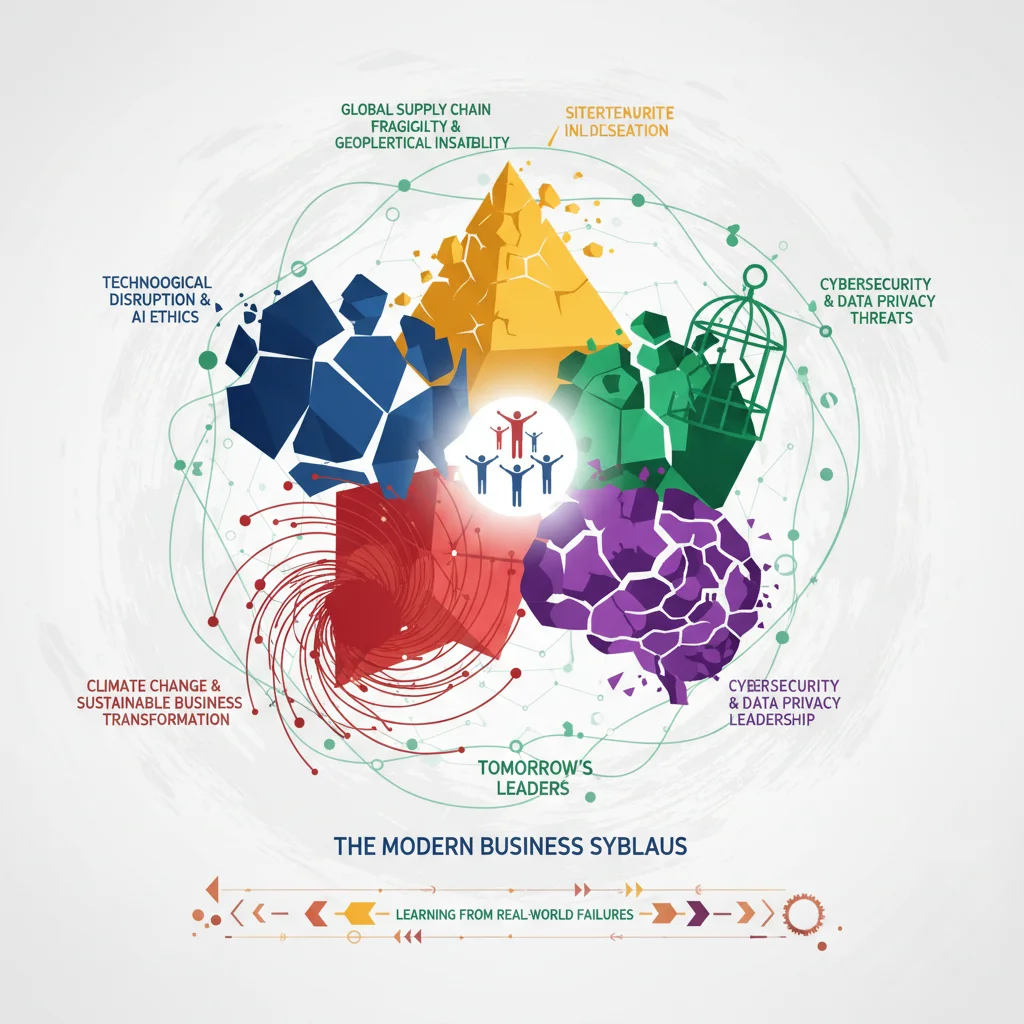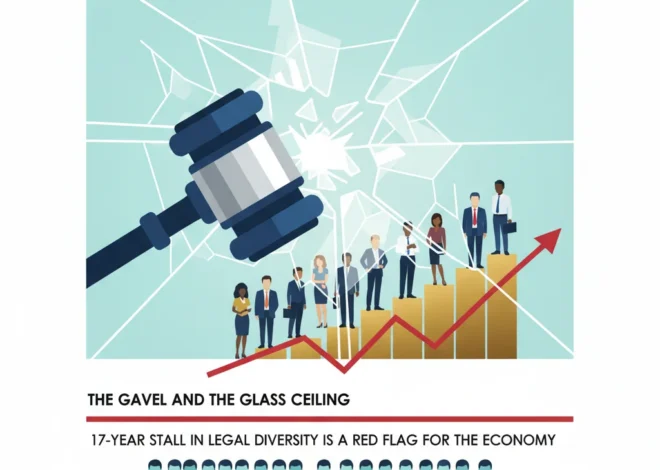
The 5 Business Crises Shaping Tomorrow’s Leaders: What Top Professors Are Teaching Now
The Modern Business Syllabus: Learning from Real-World Failures
What defines a great business leader in the 21st century? Is it the ability to forecast market trends, inspire a team, or drive relentless growth? While these are crucial, the most defining challenges—and the most profound lessons—often emerge not from success stories, but from spectacular failures. The headlines of the past few years have provided a masterclass in what happens when governance, ethics, and economic fundamentals are ignored. It’s no surprise that business school professors are turning away from dusty, decades-old case studies and pointing their students directly to the front pages of publications like the Financial Times.
These real-time debacles are not just cautionary tales; they are the crucible in which the next generation of leadership is being forged. By dissecting the collapse of crypto empires, the bust of the venture capital boom, and the quiet machinations of global economics, we can uncover timeless principles that are more relevant than ever. This isn’t just an academic exercise. For investors, finance professionals, and business leaders, understanding these crises is essential for navigating the volatile landscape of modern commerce. Let’s explore the five key case studies shaping the curriculum of the future and extract the critical insights they hold for all of us.
A Tale of Two Failures: The Crisis of Governance and Ethics
At the heart of any stable financial system is trust, and in the last few years, that trust has been severely tested. Two seemingly different stories—the implosion of a futuristic fintech darling and the persistent questions surrounding the world’s most established accounting firms—reveal a shared, critical vulnerability: the failure of governance and oversight.
The FTX Implosion: A Modern Twist on an Old Story
The collapse of Sam Bankman-Fried’s FTX empire was more than just a failure in the volatile world of cryptocurrency; it was a textbook case of catastrophic corporate governance breakdown. As detailed in the Financial Times’s reporting, FTX operated with a shocking absence of the basic checks and balances expected of any multi-billion dollar enterprise. There was no independent board of directors, no chief financial officer, and a commingling of corporate and customer funds on a staggering scale.
The allure of a charismatic founder and the hype surrounding the `fintech` revolution blinded many seasoned investors who abandoned fundamental due diligence. This crisis serves as a stark reminder that innovation in `financial technology` must be accompanied by an equal, if not greater, commitment to robust internal controls. The lesson for today’s leaders is clear: a compelling vision can never be a substitute for sound governance. Without it, even the most promising venture is a house of cards.
The Lingering Shadow of the Big Four
While FTX’s failure was swift and spectacular, a slower, more systemic issue continues to plague the pillars of the traditional `finance` world: the “Big Four” accounting firms. For years, these giants—Deloitte, EY, KPMG, and PwC—have faced scrutiny over conflicts of interest and audit quality, particularly in the wake of major corporate collapses like Wirecard and Carillion. The core issue, as professors point out, is the inherent tension between their lucrative consulting businesses and their foundational duty as independent auditors.
When an audit firm earns more from advising a company than from auditing it, can its independence truly be guaranteed? This question strikes at the heart of investor confidence in the `stock market`. The failure of auditors to flag existential risks erodes the very foundation of transparent financial reporting. This ongoing saga teaches a crucial lesson about the importance of structural integrity within the gatekeeping professions that underpin our entire economic system.
To better understand the parallels, let’s compare the governance failures at a glance:
| Governance Failure Point | FTX Case Study | Big Four Auditing Concerns |
|---|---|---|
| Board Oversight | Effectively non-existent; dominated by the founder and close associates. | While boards exist, questions remain about their ability to manage internal conflicts of interest. |
| Financial Controls | Chaotic and lacking basic accounting; commingling of funds was standard practice. | Systemic risk of audit quality being compromised by more profitable consulting arms. |
| Key Personnel | No independent CFO or Chief Risk Officer to challenge the founder’s decisions. | Partners may face dual pressures: ensuring audit quality versus driving consulting revenue. |
| Core Conflict | Founder’s absolute power and lack of accountability. | The business model itself: selling advisory services to the same clients one must independently audit. |
The Hangover: Navigating the Aftermath of ‘Easy Money’
The last decade was defined by an unprecedented economic experiment: near-zero interest rates. This firehose of cheap capital fueled bubbles in nearly every asset class, from tech startups to government spending. Now, the party is over, and the hangover is setting in. Two major events highlight the consequences of this era.
Why the Venture Capital Boom Went Bust
For years, the venture capital (VC) world operated on a simple mantra: “growth at all costs.” Fueled by a flood of capital seeking higher returns in a low-yield world, VCs poured billions into startups, pushing valuations to astronomical levels. Profitability was an afterthought; capturing market share was everything. As one professor highlighted from the FT, this era has come to a screeching halt.
With central banks aggressively raising interest rates to combat inflation, the entire model has been upended. The cost of capital is no longer negligible. Investors are now demanding not just growth, but a clear path to profitability. This seismic shift in `investing` philosophy has led to a painful correction in the tech sector, with widespread layoffs, down rounds, and a much more challenging fundraising environment. The lesson is a classic one in `economics`: the rules of financial gravity can be suspended for a time, but they always reassert themselves. Sustainable business models, not just ambitious growth stories, are once again paramount.
The Great Grift: Covid-19 Relief and Wasted Billions
The “easy money” phenomenon wasn’t confined to the private sector. In response to the Covid-19 pandemic, governments around the world unleashed trillions of dollars in relief aid. While necessary to prevent a total economic collapse, the speed of the deployment overwhelmed the systems designed to prevent fraud. The result was what the FT termed “The Great Grift”—billions of dollars stolen or wasted through fraudulent claims for loans and unemployment benefits (source).
This episode is a powerful public-sector case study on the trade-offs between speed and control. In a crisis, the pressure to act quickly is immense, but neglecting oversight can lead to staggering waste and erode public trust. It demonstrates that whether in a startup incubator or a government treasury, deploying massive amounts of capital without robust verification and accountability mechanisms inevitably invites abuse. For future leaders in both public and private sectors, this serves as a critical lesson in crisis management and fiscal responsibility.
The Trillion-Dollar Typo: Why a Small Media Correction Reveals a Huge Risk in Modern Investing
The Global Chessboard: Currency’s Silent Power
Beyond corporate scandals and economic bubbles, the global `economy` is shaped by powerful, often unseen forces. One of the most significant is the strategic management of national currencies, a high-stakes game with profound implications for international trade and finance.
The World’s Most Consequential Currency Manipulator
When we think of currency manipulation, we often picture large, aggressive economies. However, business school classrooms are now studying a more subtle but hugely consequential player: Switzerland. The Swiss National Bank (SNB) has, for years, engaged in massive interventions in foreign exchange markets, buying up hundreds of billions of dollars and euros to prevent its own currency, the Swiss franc, from appreciating too rapidly.
Why? A strong franc makes Swiss exports—from watches to pharmaceuticals—more expensive and less competitive globally. By selling francs and buying foreign currencies, the SNB keeps its currency artificially weaker, protecting its export-driven `economy`. While effective for Switzerland, this action has enormous ripple effects, distorting global capital flows and earning it the label of a “currency manipulator” from the US Treasury.
This case study is a masterclass in the complexities of modern macroeconomics. It teaches future business leaders that the price of their goods in international markets isn’t just determined by their supply chain and marketing, but also by the complex maneuvers of central `banking`. Understanding these dynamics is no longer optional for any company operating on the global stage. It highlights how national economic policy and international `trading` are deeply intertwined, creating both risks and opportunities for multinational corporations.
Beyond the Hull: The Deep Economic Currents of a Single Statistic
Key Takeaways for the Modern Leader
The business landscape is in a state of flux, and the lessons from these recent crises are invaluable for navigating the path forward. Distilling these complex events down to their core principles, we find three essential takeaways for any aspiring or current leader in business and finance:
- Governance is the Bedrock of Value: Hype, innovation, and charismatic leadership are worthless without a foundation of strong, independent governance. From the boardroom to the audit committee, robust checks and balances are not bureaucratic hurdles; they are the essential safeguards that protect value and ensure long-term survival.
- The Economic Environment Has Fundamentally Changed: The era of “free money” is over. The playbooks that worked for the last decade—prioritizing growth above all else, relying on ever-increasing valuations—are now obsolete. A return to fundamentals, including profitability, prudent capital allocation, and sustainable business models, is non-negotiable.
- A Global Mindset is Mandatory: No business operates in a vacuum. Understanding macroeconomic forces, from central bank interest rate policies to the subtle art of currency intervention, is critical. These global currents can create powerful tailwinds or devastating headwinds for your organization.
By studying these failures with an analytical eye, we can equip ourselves to build more resilient, ethical, and successful enterprises. The headlines of today are not just news; they are the curriculum for the leaders of tomorrow.


